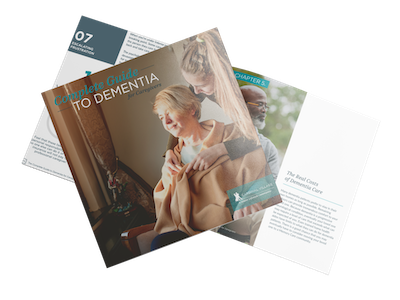Learn about the often-misunderstood effects of Sundowners syndrome, including symptoms and treatment options with Senior Lifestyle.
Sundowners syndrome can be a major source of stress for both the people who live with it, and those who care for them. The condition is still shrouded in mystery to much of the medical community and its specific causes are not yet fully understood. The medical uncertainty of sundowners syndrome makes treatment a challenge. With patience, understanding, and guidance, the effects of sundowners syndrome can be reduced.
What is Sundowners Syndrome?
Sundowners syndrome is a common symptom of dementia where confusion, frustration, and agitation becomes more acute in the evenings. Diminishing light in the evening can frighten or confuse people with dementia. Those who live with Sundowne’s syndrome generally experience symptoms around sunset, which is where the condition gets its name.
Sundowner’s syndrome (also known as Sundown syndrome or simply sundowning) is not a disease in its own right, but rather a distinct pattern of symptoms that accompany dementia.
Symptoms of Sundowner’s Syndrome
People living with Sundowners syndrome may experience a variety of symptoms and diagnosis can be difficult. If you think your loved one may have Sundowners syndrome, consult a medical professional. Symptoms of Sundowners syndrome may include any combination of the following symptoms after sunset, or in the evenings:
- Visual hallucinations
- Auditory hallucinations
- Delusional thinking
- Anxiety
- Agitation
- Restlessness
- Irritability
- Confusion
- Anger
- Pacing
- Wandering
If you see signs of Sundowners syndrome, consider consulting a medical professional or Memory Care community near you for guidance.
Potential Causes of Sundowners Syndrome to the embrace
Scientists have associated the symptoms of Sundowners syndrome with a disruption of circadian rhythm (your daily biological clock), along with various environmental and social factors. According to the Mayo Clinic, fatigue, low lighting, and increased shadows may exacerbate the effects of Sundowners syndrome.

Download The Complete Guide to Dementia for Caregivers
Taking care of a loved one with dementia can be more than challenging. Read our eBook, “The Complete Guide to Dementia for Caregivers” which offers everything you need to know about caring for your loved one.
Download the Guide
Sundowners Syndrome Treatment Options
There is no universal treatment for Sundowners syndrome. Since the causes of Sundowners syndrome are still uncertain, a comprehensive treatment has yet to be established. Despite the uncertain cause, small adjustments in daily behavior have been shown to ease the symptoms.
Here are a few ways you can reduce the symptoms in your loved ones.
-
Maintain a regular schedule
A consistent routine keeps your circadian rhythm in check. Symptoms of Sundowners syndrome have been shown to decrease in people with a firm schedule.
2. Keep your loved one’s environment well-lit in the evenings
Light has a huge effect on mood, and a well-lit room has a lower chance of frightening or confusing someone with Sundowners syndrome.
3. Reduce caffeine intake
One of the most common causes of sleep irregularity is caffeine, especially in the afternoons. Coffee, tea, and many soft drinks have high levels of caffeine. Caffeine can affect sleep quality or cause insomnia, which is shown to exacerbate Sundowners syndrome symptoms. Try replacing coffee with something caffeine-free and relaxing, like chamomile tea.
4. Encourage daytime activity
Activity and healthy stimulation is important for people living with dementia, and increased exertion promotes better sleep quality. Daytime activity promotes a healthy circadian rhythm and can reduce the severity of symptoms.
5. Discourage afternoon napping
A person who naps in the afternoon is more likely to have trouble falling asleep, or sleeping all the way through the night. Encourage your loved one to rise with the sun and sleep at night.
6. Encourage healthy eating habits
Diet and nutrition have a huge effect on mood and health overall. A healthy diet paired with a regular sleep schedule has been shown to reduce the effects of Sundowners syndrome. For inspiration on healthy diet choices for dementia, check out our guide to nutrition.
7. Prescription medication
Sleep disorders, anxiety, and depression can all contribute to Sundowners syndrome. In some cases, prescription medications can improve sleep quality, and reduce agitation, anxiety, and frustration. Sundowners syndrome is a complex condition with several contributing factors. Oftentimes, treating one aspect of Sundowners syndrome can have a rippling effect.
Until both dementia and Sundowners syndrome is better understood, caregivers are encouraged to communicate with doctors, nurses, and Memory Care providers. Pay attention to the specific sundowning triggers, and establish a strong system of support and communication.
Keep a record of any behaviors or triggers associated with Sundowners syndrome and know that you can always reach out for support if you need it.
Sundowners syndrome can be frightening for you and your loved one, but you always have resources available. For more information about Sundowners syndrome, and Memory Care community resources, reach out to a Senior Lifestyle community near you today.

